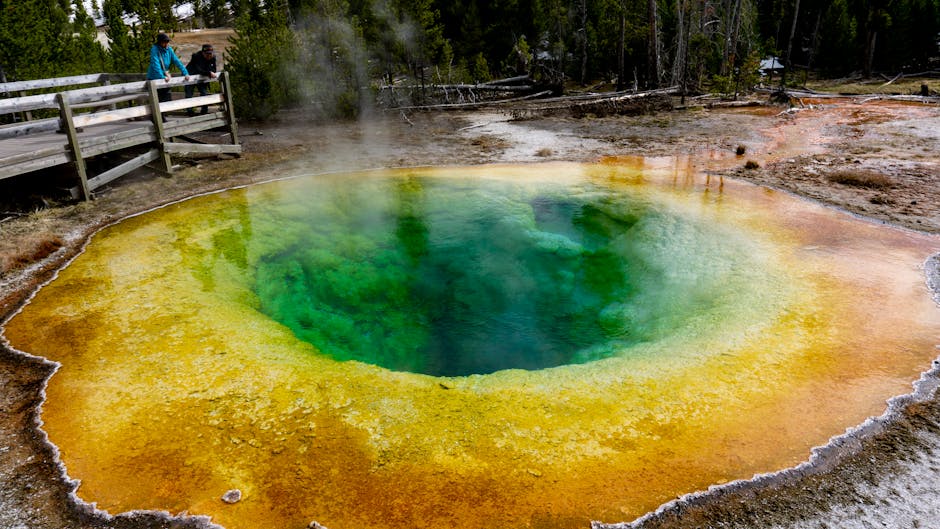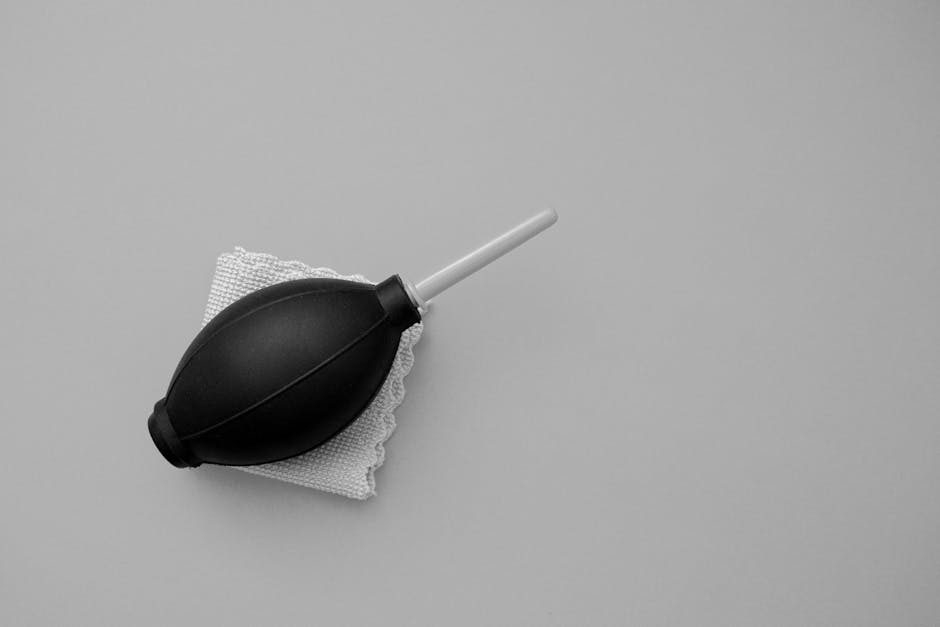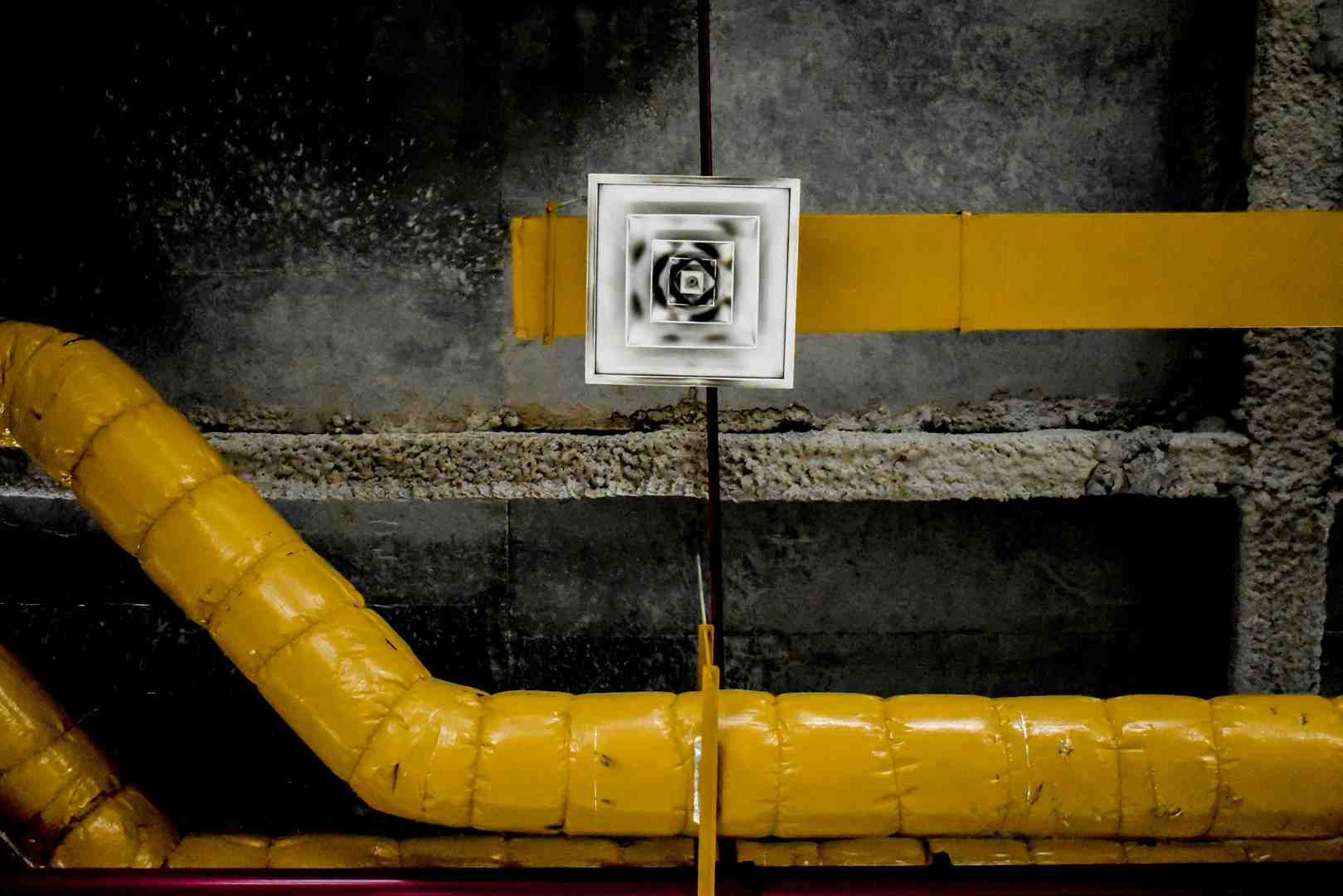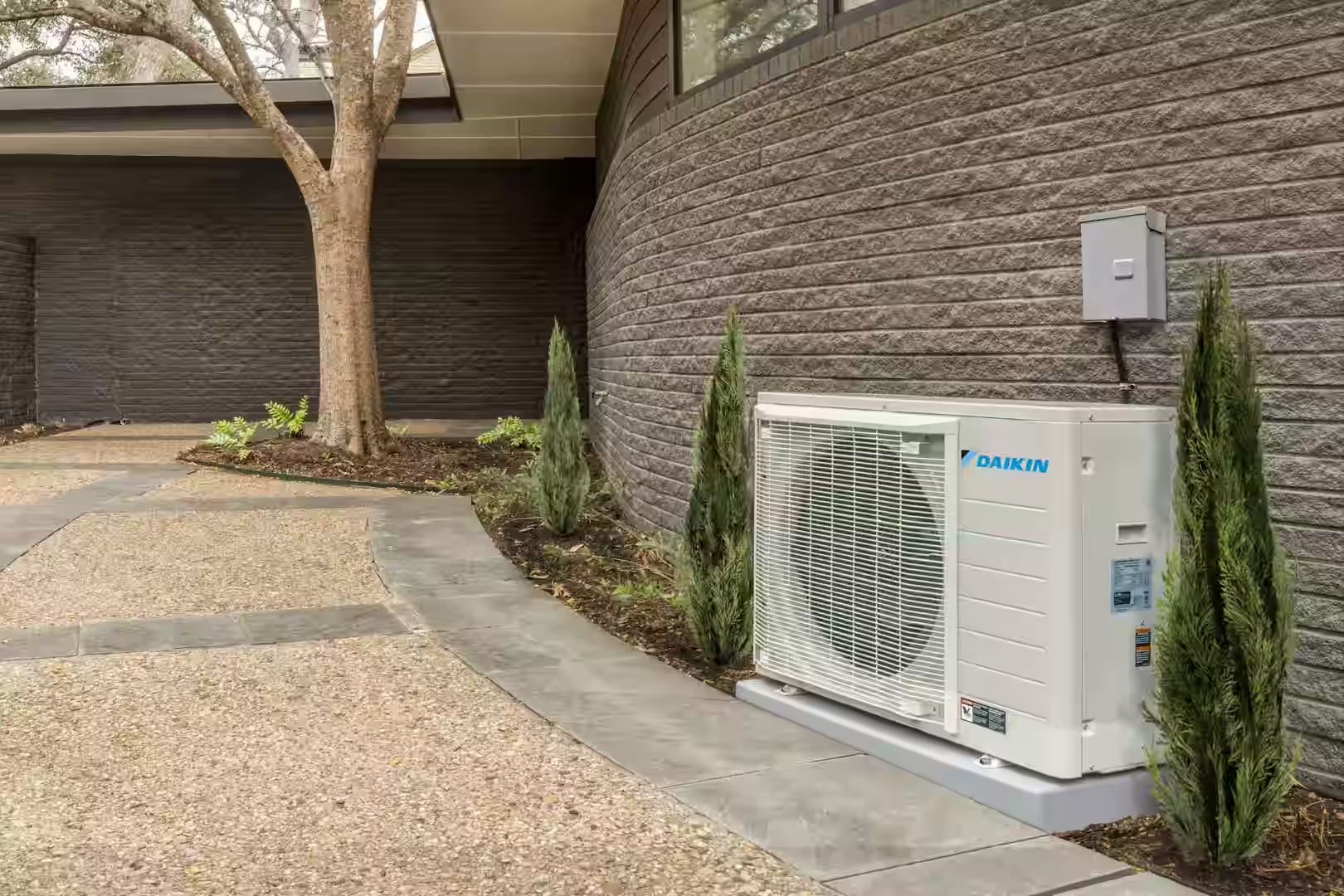Finding the Most Efficient Home Heating System
The most efficient residential heating system is typically a geothermal heat pump (3.0-5.0 COP), followed by air-source heat pumps (2.0-4.0 COP), high-efficiency condensing gas furnaces (95-98% AFUE), and condensing boilers (90-95% AFUE).
Looking for the most efficient residential heating system for your home? With heating accounting for nearly 29% of the average home's utility bill, choosing an efficient system can dramatically reduce your energy costs while keeping your family comfortable year-round.
The efficiency of heating systems is measured differently depending on the type:
- Heat pumps: Measured by Coefficient of Performance (COP) - higher is better
- Furnaces and boilers: Measured by Annual Fuel Utilization Efficiency (AFUE) - higher percentage is better
While geothermal heat pumps top the efficiency charts with performance 300-500% more efficient than electric resistance heating, the best system for your home depends on your climate, existing infrastructure, and budget.
I'm Bill Scott, general manager at Smart Climate Solutions with over 15+ years of experience helping homeowners select the most efficient residential heating system for their specific needs and budget.

Relevant articles related to most efficient residential heating system:
How We Rank Heating System Efficiency
When it comes to finding the most efficient residential heating system for your home, there's more to consider than just manufacturer claims. Efficiency isn't just a single number on a spec sheet – it's about how a system performs in your specific home, in our local climate, with our regional energy prices.

We look at several key metrics when determining true efficiency. Coefficient of Performance (COP) tells us how much heat a system produces relative to the energy it consumes. Annual Fuel Utilization Efficiency (AFUE) shows us what percentage of fuel actually becomes useful heat in your home. For heat pumps that provide both heating and cooling, we also examine Heating Seasonal Performance Factor (HSPF) and Seasonal Energy Efficiency Ratio (SEER).
The most efficient residential heating system on paper might not be the most cost-effective in your particular home. We factor in your local energy prices, the system's carbon footprint, and the total cost of ownership – balancing upfront costs against lifetime energy savings.
Understanding COP & AFUE
These two efficiency metrics measure different things and can't be directly compared.
Coefficient of Performance (COP) applies to heat pumps, which transfer heat rather than generate it. A heat pump with a COP of 3.0 delivers 3 units of heat energy for every 1 unit of electricity it consumes – 300% efficiency! Modern heat pumps achieve impressive performance:
- Geothermal systems: 3.0-5.0 COP
- Air-source heat pumps: 2.0-4.0 COP
- Cold-climate models: 1.5-2.5 COP at 5°F
For furnaces and boilers, Annual Fuel Utilization Efficiency (AFUE) tells you what percentage of fuel becomes useful heat. A 95% AFUE furnace converts 95% of its fuel into warmth, with only 5% lost. Today's best systems include:
- High-efficiency condensing gas furnaces: 95-98% AFUE
- Condensing boilers: 90-95% AFUE
- Standard efficiency furnaces: 80-85% AFUE
The Role of Home Envelope
Even the most efficient residential heating system will struggle in a leaky, poorly insulated home. Your home's envelope – its insulation, air sealing, and windows – is just as important as the heating system itself.
Before recommending a high-efficiency heating upgrade, we often suggest addressing these envelope factors first:
- Air sealing can reduce heating costs by 10-20%
- Insulation R-value upgrades dramatically reduce heat loss
- Duct sealing prevents 20-30% energy waste in unconditioned spaces
- Windows with double or triple-pane glass significantly reduce heat loss
More info about HVAC Solutions for Residential Refurbishment
What Is the Most Efficient Residential Heating System Today?
When it comes to pure efficiency, geothermal heat pumps are the undisputed champions of home heating. These systems achieve the highest efficiency ratings on the market today, with COPs ranging from 3.0 to 5.0 – producing up to 5 units of heat for every single unit of electricity consumed.

Unlike traditional heating systems that generate heat, geothermal systems (also called ground-source heat pumps) work by tapping into the earth's natural warmth. Just a few feet below your lawn, ground temperatures stay remarkably stable all year – typically between 45°F and 60°F regardless of weather conditions.
This natural stability gives geothermal systems impressive advantages:
- Performance doesn't drop during cold snaps
- 300-500% more efficient than electric resistance heating
- Provides both heating and cooling from a single system
- Indoor components last up to 24 years
- Underground loops can last 50+ years
- Energy use reductions of up to 60%
The federal government currently offers a substantial 30% tax credit on the entire installation cost with no upper limit, thanks to the Inflation Reduction Act.
Geothermal Basics & Payback
Geothermal systems come in several configurations to suit your property:
- Closed-loop systems circulate an antifreeze solution through underground pipes:
- Horizontal loops (less expensive, need more yard space)
- Vertical loops (less land area, deeper drilling of 100-400 feet)
- Pond loops (most economical if you have a water feature)
- Open-loop systems use groundwater from a well as the heat exchange fluid
Geothermal systems have the highest upfront cost ($10,000-$24,000) but deliver the best long-term value, typically paying for themselves within 5-10 years through energy savings of $1,000-$1,500 annually for a typical 2,000 square foot home.
Air-to-Water Upgrades for Radiant Floors
If geothermal isn't feasible, air-to-water heat pumps paired with radiant floor heating offer an excellent alternative. These systems use an outdoor unit similar to a standard heat pump but transfer heat to water instead of air, which then flows through tubing embedded in your floors.
Benefits include:
- No cold spots or drafts
- Silent operation (no fans or blowing air)
- Excellent efficiency with lower water temperatures (100-120°F)
- Zone control for different room temperatures
- Natural feeling heat that warms objects and people directly
These systems achieve COPs of 2.5-3.5 in moderate climates, making them the second most efficient residential heating system after geothermal.
Comparing Top Efficient Heating Technologies
Let's compare the efficiency, cost, and suitability of today's top heating systems to help you identify which might be the most efficient residential heating system for your specific situation.

| System Type | Efficiency Rating | Installation Cost | Annual Operating Cost* | Best Climate Fit | Lifespan |
|---|---|---|---|---|---|
| Geothermal Heat Pump | 300-500% (COP 3.0-5.0) | $10,000-$24,000 | $500-$700 | All climates | 20-25 years (indoor unit); 50+ years (ground loops) |
| Air-Source Heat Pump | 200-400% (COP 2.0-4.0) | $4,500-$8,000 | $700-$1,000 | Mild to moderate | 15-20 years |
| Ductless Mini-Split | 200-400% (COP 2.0-4.0) | $3,000-$7,000 per zone | $650-$950 | Mild to moderate | 15-20 years |
| Hybrid/Dual-Fuel System | 200-400%/95-98% AFUE | $7,500-$10,000 | $650-$900 | Cold climates | 15-20 years |
| Condensing Gas Furnace | 95-98% AFUE | $4,000-$8,000 | $800-$1,200 | Cold climates | 15-20 years |
| Condensing Boiler | 90-95% AFUE | $5,000-$10,000 | $850-$1,300 | Cold climates | 15-20 years |
*Annual operating costs estimated for a 2,000 sq ft home in the Pittsburgh area.
Heat Pumps: Why They're Often the Most Efficient Residential Heating System
Heat pumps move heat instead of creating it, delivering 2-4 units of heat for every unit of electricity consumed. Air-source heat pumps come in several varieties:
- Central ducted systems connect to existing ductwork
- Ductless mini-splits mount on walls and control individual room temperatures
- Ducted mini-splits offer zoning for specific areas
Today's heat pumps perform efficiently even when temperatures drop to -15°F. For Western Pennsylvania winters, we recommend cold-climate ASHPs or hybrid dual-fuel systems that pair a heat pump with a gas furnace backup.
High-Efficiency Gas & Propane Furnaces
Modern condensing furnaces achieve impressive 95-98% AFUE ratings, a huge improvement over older 80% models. These systems feature:
- Condensing technology that extracts maximum heat from exhaust gases
- Sealed combustion that draws air from outside
- Variable-speed blowers that adjust airflow precisely
- Multi-stage burners that match heat output to actual needs
- Smart controls that optimize performance based on conditions
While heat pumps win the efficiency race in milder weather, condensing gas furnaces often make more financial sense in very cold climates. Upgrading to a 96% AFUE condensing furnace typically cuts gas consumption by 15-20% compared to older models.
Condensing Boilers & Radiant Hydronic Floors
Modern condensing boilers achieve impressive 90-95% AFUE ratings and pair beautifully with various distribution methods:
- Sleek panel radiators with modern, slim profiles
- Familiar baseboard heaters that provide gentle convection heating
- Radiant floor systems that turn your entire floor into a heat source
Combining a condensing boiler with radiant floor heating creates exceptionally comfortable, efficient heat. The system works with water as low as 90-110°F, allowing boilers to operate in their most efficient condensing mode.
Choosing the Right System for Your Climate and Budget
Finding the most efficient residential heating system for your home isn't just about picking the option with the highest efficiency rating. It's about finding the perfect match for your specific climate, home, and budget.
Climate Considerations
For cold winters in Western Pennsylvania and Northern West Virginia, consider systems that maintain efficiency even when temperatures plummet:
- Geothermal heat pumps draw heat from underground where temperatures remain stable
- Cold-climate air-source heat pumps rated for sub-zero operation
- Hybrid dual-fuel systems that pair a heat pump with gas backup
For more moderate climates like Southeast Ohio:
- Standard air-source heat pumps offer excellent efficiency
- Ductless mini-splits provide flexible zone heating and cooling
- Air-to-water heat pumps paired with radiant floor systems deliver comfortable, even heat
Budget Considerations
Your budget influences your options, but remember – the initial price tag doesn't tell the whole story:
- Initial budget under $5,000: High-efficiency furnace upgrade or single-zone mini-split
- $5,000-$10,000: Multi-zone mini-split system or whole-house air-source heat pump
- $10,000 or more: Premium options like geothermal systems or comprehensive hydronic heating
High-efficiency systems keep paying you back through lower utility bills. Properly sized geothermal systems can save homeowners $1,200 annually compared to standard furnaces.
At Smart Climate Solutions, we perform detailed load calculations and energy analyses for every home we work with, helping you understand the true lifetime cost of different options by analyzing:
- Your home's specific heating requirements
- Local energy prices and how they affect operating costs
- Available incentives that can reduce your upfront investment
- The expected payback period for each system
Decision Checklist for Picking the Most Efficient Residential Heating System
When helping homeowners find their perfect heating solution, we consider these key factors:
- Climate assessment: How cold does it get? How many below-freezing days?
- Home characteristics: Existing ductwork condition, insulation levels, zoning needs
- Personal priorities: Operating costs, environmental impact, noise levels
- Budget reality: Initial cost, available incentives, financing options, lifetime costs
- Fuel options: Electricity vs. natural gas rates, price stability, space requirements
Leveraging Federal & State Incentives
Current federal Inflation Reduction Act offers substantial tax credits:
- 30% tax credit with no upper limit for geothermal heat pumps
- Up to $2,000 for air-source heat pumps and heat pump water heaters
- Up to $600 for high-efficiency gas furnaces and boilers
These federal incentives are often complemented by state and local programs:
- Pennsylvania: Utility rebates up to $1,500 for high-efficiency heat pumps
- Ohio: AEP Ohio rebates up to $1,200 for qualifying heat pumps
- West Virginia: Appalachian Power and Wheeling Power efficiency incentives
Maintenance & Upgrades to Keep Peak Efficiency
Even the most efficient residential heating system will gradually lose its edge without proper care. Think of your heating system like a car – regular maintenance keeps it running smoothly for years.

A well-maintained system can maintain near-original efficiency levels throughout its lifespan, while neglected systems might lose 5% efficiency per year.
Professional maintenance should happen annually, ideally before heating season begins. Our certified technicians perform:
- Thorough system inspection and cleaning
- Combustion analysis and adjustments for optimal fuel-to-air ratios
- Refrigerant level checks for heat pumps
- Electrical connection tightening
- Safety control testing
- Duct leak inspection
Homeowner maintenance is also crucial:
- Replace/clean air filters every 1-3 months (clogged filters can increase energy use by 15%)
- Keep outdoor units clear of debris
- Listen for unusual sounds
- Ensure vents and radiators aren't blocked by furniture
Beyond basic maintenance, strategic upgrades can improve efficiency:
- Smart thermostats reduce heating costs by 10-15%
- Variable-speed motors improve airflow and efficiency
- Zoning systems heat only the areas you're using
Operating and Maintaining Your Heat Pump
Whole-House Improvements
Your heating system works best when paired with a well-insulated, tightly sealed home:
- Attic insulation upgrades to R-49 or higher can cut heating bills by 10-20%
- Air sealing addresses small leaks that collectively waste significant energy
- Duct sealing prevents 20-30% of conditioned air from escaping
- Crawl space and basement insulation eliminates significant heat loss
- Window upgrades to double or triple-pane models reduce heat loss
- Smart home integration enables sophisticated energy management
Many of these improvements qualify for additional incentives beyond heating system rebates and often allow you to install a smaller, less expensive heating system.
Frequently Asked Questions about Efficient Home Heating
How does climate affect heat-pump performance?
Outdoor temperatures significantly impact heat pump performance. A standard air-source heat pump with a 3.5 COP at 47°F might drop to a 2.0 COP at 17°F.
Today's cold-climate heat pumps maintain impressive efficiency even at -15°F, thanks to improved compressors, larger heat exchangers, and sophisticated refrigerant management.
For homes in our service area, we typically recommend:
- Cold-climate rated heat pumps for standalone systems
- Hybrid systems with gas backup for extremely cold days
- Geothermal heat pumps for consistent performance regardless of weather
What size system do I need for a 2,000 sq ft home?
Proper sizing is critical for efficiency and comfort. An oversized system will short-cycle, while an undersized one will run constantly without catching up.
For a well-insulated 2,000 sq ft home in Western Pennsylvania, typical sizing includes:
- Heat pump: 2.5-3.5 tons (30,000-42,000 BTU)
- Furnace: 60,000-80,000 BTU
- Boiler: 60,000-80,000 BTU
However, these are just estimates. The only truly accurate way to size a heating system is through a detailed Manual J load calculation that accounts for your home's specific characteristics.
Can I retrofit a radiant floor into an existing house?
Absolutely! There's a solution for almost every situation:
- For existing concrete slabs: Electric radiant mats under new flooring or a thin "mini-slab" over existing floor
- When access is available from below: Aluminum heat transfer plates with PEX tubing between floor joists
- During renovations: Ultra-low-profile hydronic panels (just ½ inch thick) or traditional in-slab systems
For the most efficient residential heating system, we recommend pairing radiant floors with either a condensing boiler or an air-to-water heat pump.
Operating and Maintaining Your Heat Pump
Conclusion
Finding the most efficient residential heating system for your home isn't just about picking the system with the highest efficiency rating. It's about finding the perfect match for your unique home, climate, and lifestyle.
While geothermal heat pumps lead the pack with impressive efficiency numbers, the best choice for your family might be an air-source heat pump, a modern condensing furnace, or a hydronic system, depending on your specific situation.
At Smart Climate Solutions, we've spent 15+ years helping homeowners throughout Western Pennsylvania, Southeast Ohio, and Northern West Virginia make these important decisions. Our whole-home approach includes:
- Thorough home assessment with detailed measurements to calculate your actual heating needs
- Clear explanation of efficiency ratings and what they mean for your comfort and budget
- Transparent breakdown of all costs – equipment, operating, and lifetime maintenance
- Meticulous installation by NATE-certified technicians
- Ongoing maintenance to keep your system running at peak efficiency
Whether you're building a new home, replacing an aging furnace, or upgrading to something more efficient, we'll guide you to a solution that keeps your family comfortable without breaking the bank.
Ready to find the most efficient residential heating system for your home? Our team serves homeowners throughout Pittsburgh, Washington PA, Steubenville OH, St. Clairsville OH, and all surrounding communities.






.png)
